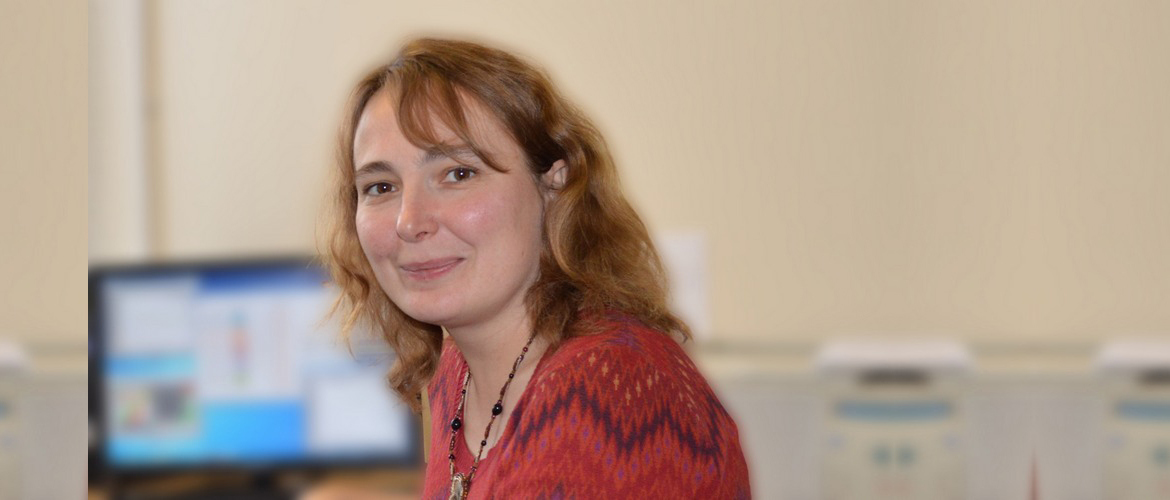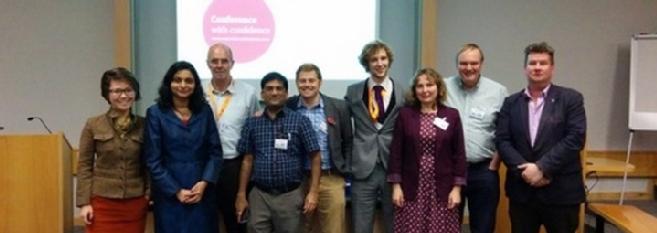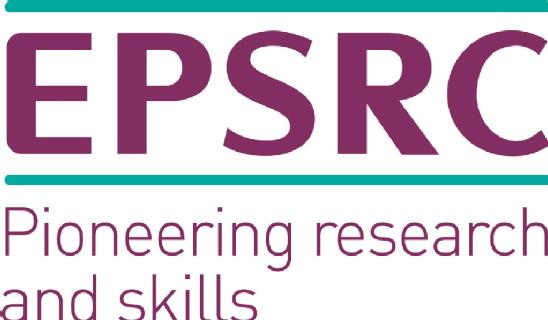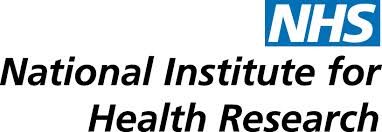Professor Natasha Khovanova

Professor Natasha Khovanova
Director of Graduate Studies in the School of Engineering
N dot Khovanova at warwick dot ac dot uk
+44 (0) 24 7652 8242
Biography
Natasha Khovanova studied for her doctorate in the Department of Physics at Saratov State University (Russia) and has a PhD degree in Physical and Mathematical Sciences. After her graduation and before moving to the UK, she held an academic post in the same department.
She joined the School of Engineering of the University of Warwick in 2010 and is a Professor in the Systems and Information Engineering stream and an EPSRC Fellow. She is also an Honorary academic at the University Hospital Coventry and Warwickshire. Before taking her appointment at the School of Engineering, she was based in the Department of Physics at Lancaster University
Research Interests
-
Identification, stability and control of linear and nonlinear systems with application to diabetes
-
- Our primary aim is to understand physiological mechanisms of glucose absorption and describe the intra-/inter- subject variability of blood glucose variations in people with and without diabetes for early diagnosis and personalised management of the disease.
- Natasha is currently leading a five-year research project on early diagnosis and control of gestational diabetes as a Chief Investigator. It is a joint venture between the School of Engineering and University Hospitals Coventry and Warwickshire, funded by EPSRC UK, UHCW NHS Trust and Dexcom, and is supported by the Clinical Research Network of the National Institute for Health Research.
-
Time series analysis of complex signals and synchronisation phenomenon with application to cardio-respiratory coupling
-
- We study the underlying mechanisms governing the communication between the cardiovascular and respiratory systems with particular attention to the differences in athletes and non-athletes.
- Our main attention is the novel experimental design and application of the concept of instantaneous phase to detect cardio-respiratory entrainment at various respiratory rates and to utilise this non-invasive measure for tracking a person’s athletic development.
-
Development of machine learning and artificial intelligence methods with applications to limited data in clinical settings
-
- Our emphasis on the utility of machine learning for data-efficient classification, regression and survival analysis to overcome the common limitations inherent in routinely collected patient data, such as class imbalance, incomplete samples and limited data size, i.e.less than 10 observations per predictor variable.
-
Supervised and unsupervised machine learning and data-driven dynamic modelling with application to high-risk renal transplantation
-
- Our aim is to understand the role of donor-specific antibodies in HLA-incompatible kidney transplantation for risk stratification and effective treatment.
- This is a collaborative project between the School of Engineering, Leeds Teaching Hospital NHS Trust, NHS Blood and Transplant Birmingham and University Hospitals Coventry and Warwickshire NHS Trust

Teaching Interests
Current undergraduate courses
- ES3C8 System Modelling and Control
- ES327 Individual research projects
Selected Publications
- Paneshar A, Khovanova N, Gharanei P, Young L, Grammatopoulos D (2025): Thyroid function during COVID-19 and post-COVID complications in adults: a systematic review. Frontiers in Endocrinology. Thyroid Endocrinology. V 15. https://doi.org/10.3389/fendo.2024.1477389
- Archavli A, Randeva H, Khovanova N (2024): Postprandial peak identification from continuous glucose monitoring time series, IFMBE Proceedings, V 93, Springer Nature, pp. 96-107. (MEDICON’23 and CMBEBIH’23 eBook ISBN 978-3-031-49062-0).
- Daga S, Khovanova N, Babu A, Krishnan N. and Briggs D. (2023): The in vitro C3d generating attribute of HLA-specific antibodies can be used to stratify immune risk in HLA incompatible transplantation by predicting the clinical efficacy of desensitisation. HLA Immune Response Genetics 102(5): 607-608, https://doi.org/10.1111/tan.15197
- Phillpott M, Daga S, Higgins R, Lowe D, Krishnan N, Zehnder D, Briggs D, Khovanova N: Dynamic behaviour of donor specific antibodies in the early period following HLA incompatible kidney transplantation.Link opens in a new window Transplant International. Apr 2022, doi: https://doi.org/10.3389/ti.2022.10128
- Khovanov IA, Perry S, Khovanova NA: Asymmetry of synchronisation tongue in persistent sodium plus potassium neuron model. Communications in Nonlinear Science and Numerical Simulation. Oct 2021, 106071, doi: 10.1109/EMBC44109.2020.9175778.
- Eichenlaub MM, Saccomani MP, Hattersley JG, Khovanova NA. Comment on 'Minimal and Maximal Models to Quantitate Glucose Metabolism: Tools to Measure, to Simulate and to Run in Silico Clinical Trials';Link opens in a new window. Journal of Diabetes Science and Technology. Oct 2021; doi: 10.1177/19322968211053884
- Daga S, Babu A, Khovanova N, Higgins R. Defining clinically pathogenic HLA-specific antibodies - granular details in characteristics in pre and early time following HLA-antibody incompatible kidney transplantation. OBM Transplantation; 5(3):20; 2021. doi:10.21926/obm.transplant.2103151.
- Krishnan N, Abimbola, A, Machan N, Daga S, Gopalakrishnan K, Lam F, Tan L, Kashi H, Imray C, Zehnder D, Collins C, Curtis R, Higgins R, Khovanova N, Briggs D. HLA antibody incompatible renal transplantation: long-term outcomes similar to deceased donor transplantation, Transplantation Direct; 7(8):e732; 2021. doi: 10.1097/TXD.0000000000001183.
- Eichenlaub MM, Khovanova NA, Gannon MC, Nuttall FQ, Hattersley JG. A Glucose-only model to extract physiological information from postprandial glucose profiles in subjects with normal glucose tolerance. Journal of Diabetes Science and Technology. July 2021. doi:10.1177/19322968211026978
- Eichenlaub MM, Hattersley JG, Gannon MC, Nuttall FQ, Khovanova NA. Bayesian parameter estimation in the oral minimal model of glucose dynamics from non-fasting conditions using a new function of glucose appearance. Computer Methods and Programs in Biomedicine. 200, 105911; 2021.
-
Perry S, Khovanova N , Khovanov I. Physical fitness contributes to cardio-respiratory synchronization. 2019 41st Annual International Conference of the IEEE Engineering in Medicine & Biology Society (EMBC), Berlin, Germany, 23-27 July 2019, pp. 4957-4960. doi: 10.1109/EMBC.2019.8857193.
- Perry S, N Khovanova N , Khovanov I. Control of heart rate through guided high rate breathing. Scientific Reports, 9 (1545); 2019.
- Shaikhina T, Lowe D, Daga S, Briggs D, Higgins R, Khovanova N. A. Decision tree and random forest models for outcome prediction in antibody incompatible kidney transplantation. Biomedical Signal Processing and Control, 52, pp. 456-462; 2019.
- Shaikhina, T, Khovanova, N. A. Handling limited datasets with neural networks in medical applications: a small-data approach. Artificial Intelligence in Medicine, 75, pp. 51-63; 2017.
- Zhang, Y, Briggs, D, Lowe, D, Mitchell, D. A., Daga, S, Krishnan, N, Higgins, R, Khovanova, N. A. A new data-driven model for post-transplant antibody dynamics in high-risk kidney transplantation. Mathematical Biosciences, 284, pp. 3-11; 2017.
- Shaikhina, T, Lowe, D, Daga, S, Briggs, D, Higgins, R, Khovanova, N. A. Machine learning for predictive modelling based on small data in biomedical engineering. IFAC-PapersOnLine, 48 (20), pp. 469-474; 2015.
- Khovanova, N. A., Daga, S, Shaikhina, T, Krishnan, N, Jones, J, Zehnder, D, Mitchell, D, Higgins, R, Briggs, D, Lowe, D. Subclass analysis of donor HLA-specific IgG in antibody-incompatible renal transplantation reveals a significant association of IgG4 with rejection and graft failure. Transplant International, 28 (12), pp. 1-11; 2015.
- Zhang, Y, Holt, T., Khovanova, N. A. A data-driven nonlinear stochastic model for blood glucose dynamics. Computer Methods and Programs in Biomedicine, 125, pp. 18-25; 2015.
- Khovanova, N. A., Shaikhina, T, Mallick, K. Neural networks for analysis of trabecular bone in osteoarthritis. Bioinspired, Biomimetic and Nanobiomaterials, pp. 1-11; 2014.
- Khovanov, I. A., Khovanova, N. A. Numerical simulations versus theoretical predictions for a non-Gaussian noise-induced escape problem in application to full counting statistics. Physical Review B (Condensed Matter and Materials Physics), 89 (8); 2014.
- Khovanova, N. A., Khovanov, I. A., Sbano, L., Griffiths, Frances, Holt, T. Characterisation of linear predictability and non-stationarity of subcutaneous glucose profiles. Computer Methods and Programs in Biomedicine, 110 (3), pp. 260-267; 2013.
- Khovanova, N. A., Windelen, J. Minimal energy control of a nanoelectromechanical memory element. Applied Physics Letters, Vol.101 (No.2); 2012.
- Khovanova, N. A., Khovanov, I. A. The role of excitations statistic and nonlinearity in energy harvesting from random impulsive excitations. Applied Physics Letters, Vol.99 (No.14); 2011.
Latest Projects and Grants
- Development of a device for in-ear health monitoring and diagnostics. Funded by EPSRC. Nov 2023-Dec 2024.
- Uncovering novel biomarker signatures of pre-eclampsia through deep-omic approaches. Research Development Fund (RDF) Strategic Award, Oct 2023- Jul 2024
- Prediction of Long Covid disease progression to severe disease endpoints. Funded by Siemens, in collaboration with UHCW and WMS, Jan 2024 - Dec 2024
- Early diagnosis and prevention of complications of gestational diabetes via modelling the complex dynamics of blood glucose variations. Funded by UHCW NHS Trust and Dexcom, Jan 2021 - Jan 2026
- Neutrophil Extracellular Traps as biomarkers of endothelial dysfunction and immunothrombosis in severe COVID-19 infection. Funded by Medical and Life Sciences Research Fund, Aug 2021- Jun 2022.
- Understanding barriers to accurate early laboratory diagnosis and patient-centric control of gestational diabetes mellitus. Funded by EPSRC, Discipline Hopping Fellowship, 7 Jan 2021 - 1 Jun 2022
- Gestational diabetes: early diagnosis and prevention of complications via modelling the complex dynamics of blood glucose variations. PhD Fellowship. Funded by UHCW NHS Trust, Jan 2019 - Jan 2022
- Modelling of pathogenicity of donor-specific antibodies in kidney transplantation. Funded by UHCW NHS Trust, Oct 2017 - Apr 2021
- Personalised predictive nonlinear systems modelling and control of blood glucose dynamics. Funded by UHCW NHS Trust, Jun 2016 - May 2019
- A novel approach to clinical data analysis - application to kidney transplantation. Funded by EPSRC, Apr 2013 - Sept 2015




